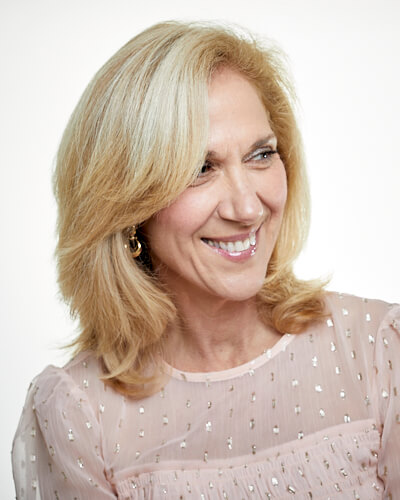Grieving the loss of a spouse is one of the most difficult trials of life. Knowing what to expect, how to cope, and what’s possible beyond grief can help you heal your heart and comfort your soul.
He was your life. She was your everything. Now, they’re gone and nothing will be the same.
As someone who lost her husband after a 5-month battle with cancer, I understand on a deeply personal level how difficult this life transition can be.
What do you do with all this pain? How do you adjust to living alone? Will life always feel this hopeless or meaningless?
The grief journey actually begins after the ‘dust’ settles
Seeing your spouse, parent or family member transition beyond this life is incredibly painful– even if they took their last breaths in peace.
However, the real grief journey doesn’t begin until after everything has settled. The preparation, wake, memorial or funeral is a time of busyiness. People are buzzing all around you, offering condolences and support. This triggers an adrenaline response that allows you to stay upright when your world has fallen apart. The trauma of this loss is so great, you’re often not fully present in your body at this time.
The reality hits when you get home– whether you’re alone or with family. You’re faced with the pain that your spouse isn’t coming home and the finality of this loss is crushing.
During these first few days and weeks, you’ll likely feel:
- Exhaustion of the mind, body, soul and spirit
- A rollercoaster of emotions that accompany grief, such as:
- Sadness
- Shock
- Anxiety
- Anger
- Fear
- Guilt
- Depression
- Frustration and more
- Confusion, mind fog, or like you’re ‘going crazy’
Any emotion you feel at this time is valid, so be kind to yourself.
Eventually, you’ll also recognize your grief shifting. With time, the fog lifts and the loss becomes real. You’re no longer part of a couple and have to navigate the world on your own, maybe after decades. This new identity is thrust upon you, even though you don’t want it and it’s terrifying to embrace.
Don’t overdo anything at this time. It’s vital you pay attention to your body, mind and soul. Show yourself self-love. Get daily rest. Eat balanced meals, and don’t feel guilty about clearing your schedule so you can heal as gently as possible. It’s also beneficial to reach out to an expert, pastor, or friend who truly ‘gets’ what you’re going through right now.
Honor and Express Your Spirituality
If faith is part of your life, expressing it will be a great comfort. Allow yourself to be around people who understand and support your belief system. It might not take away the pain right now, but knowing your spouse/loved one has moved on to a beautiful afterlife will eventually ease your heart.
However, if you feel stuck, lost, or overwhelmed by dark thoughts it’s crucial to find help. A trusted confidante who isn’t critical of the thoughts, feelings, and emotions you’re feeling will provide the best support at this time.
Holidays, Anniversaries and Special Occasions May Never Be The Same
You will probably find that on some days, you miss your spouse more than others. Days and events that held special meaning for you as a couple, such as your birthday, your spouse’s birthday, your wedding anniversary or the day of their death, may be more difficult to go through by yourself.
Again, be kind to yourself. It may feel like your healing is going backwards on these days, but having a special companion will soften the pain during these naturally difficult times.
Find a Solid Support System
The most compassionate self-action you can take is finding a support system who will lift you up, understand your needs, and offer real solutions to process your grief in a healthy manner.
Whether you reach out to a support group or choose to work one-on-one with a specialist like me, there’s no substitute for learning from others who have also experienced the death of their spouse.
This period can be challenging. Some people may be judgemental about your unique grief or expect you to grieve for a determined amount of time. Others may misunderstand or even reject you when you’re happy or don’t ‘look’ like a grieving spouse.
Avoid these individuals if you can, and seek out those people who encourage you to be yourself no matter if you’re content and thriving or anxious and sad.
Don’t be afraid to let go
Often, we don’t actually want to release our heavy grieving. It becomes our constant companion that reminds us of the loved one we’ve lost.
But this is how people get stuck in the prison of grief, never moving forward. Their grief becomes their identity, robbing their potential for the rest of their lives.
Although this step is tough, it’s crucial to redefine who you are now that they’re gone and be prepared to let your grief go.
At this point, you might be terrified their memory will fade. You might be scared you’ll completely forget them. You won’t. Give yourself permission to let go and embark on this next chapter of life.
Facing the first anniversary of their death
As the first year approaches, it helps tremendously to create a ritual around your loved one’s passing. Allow yourself to look forward to this– spreading their ashes or putting away their belongings isn’t a betrayal of your love.
Instead, use this as an opportunity to celebrate their life and what you shared together. They want you to heal, move forward, and rediscover the joys of life. Isn’t that what you’d want for them if the roles were reversed?
Moving beyond grief after the first year
Going through this process is one of the most difficult trials of life, but with help and support you can come out the outside stronger and brighter.
Now that the first year of grief has passed, it’s time to focus on you by making an important decision– one that can bring joy, meaning and purpose to your life or leave your floundering.
Discovering the real reason you’re here and turning your grief into Greatness
Now that you’ve glimpsed the first year of grief and beyond, I hope you find some comfort in knowing what’s possible.
There IS life beyond grief. Moving forward doesn’t discount your spouse’s life or erase their impact on your life.
This is about allowing yourself to explore what life is about now, and finding new purpose and meaning that satisfies your soul.
If you’d like help to heal, move forward, and create a life you love, I’d be honored to help. As someone who’s been through this journey myself, and helped thousands of others through it too, I specialize in helping people turn grief into Greatness…
Whatever Greatness means to you.
If you would like to watch a short video where I speak about this topic, simply click here.
If that’s something that interests you, I invite you to book a conversation with me when you’re ready. Let’s get through this together and make this one of the most fulfilling chapters of your life.





